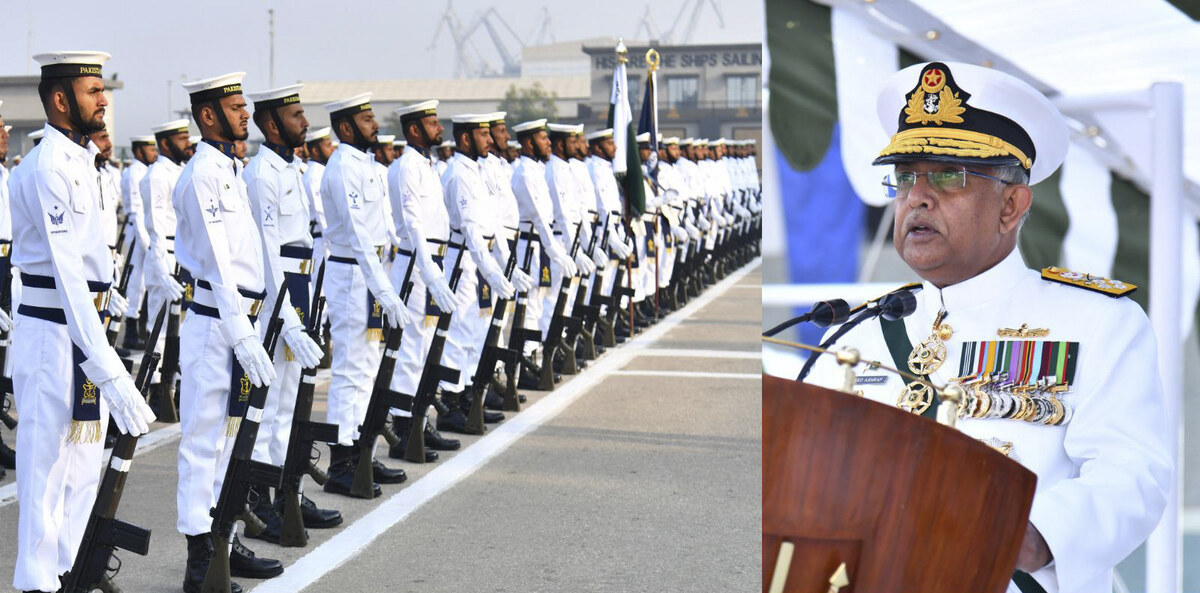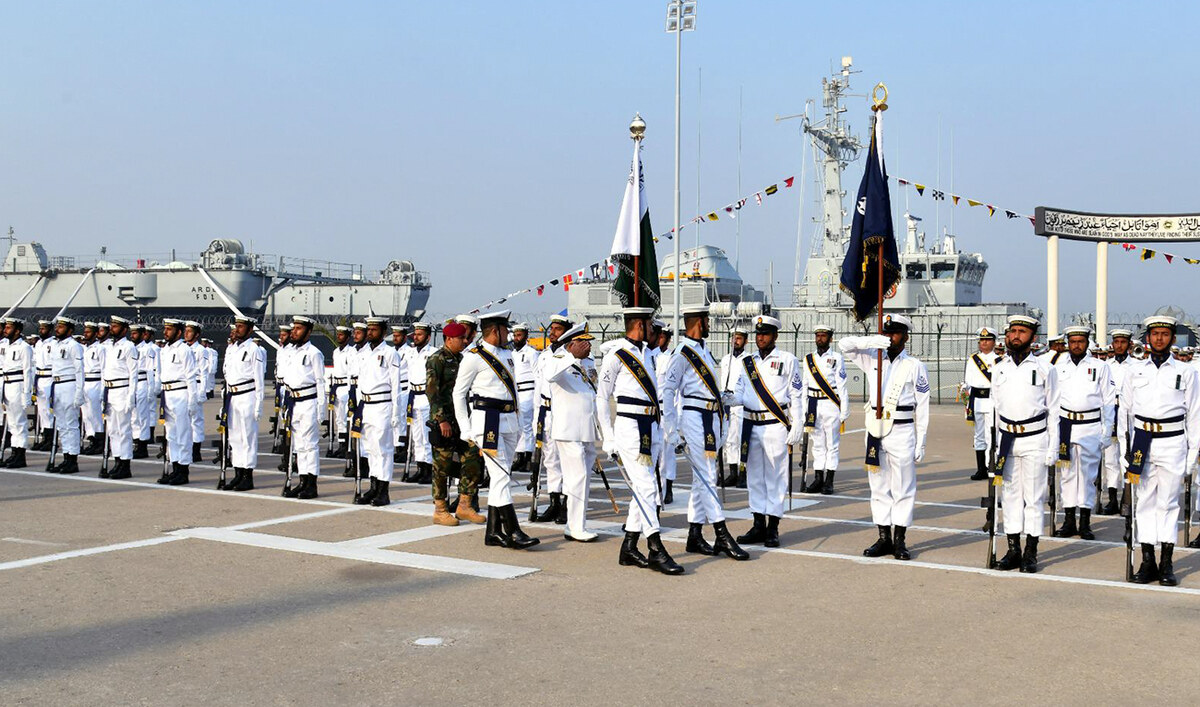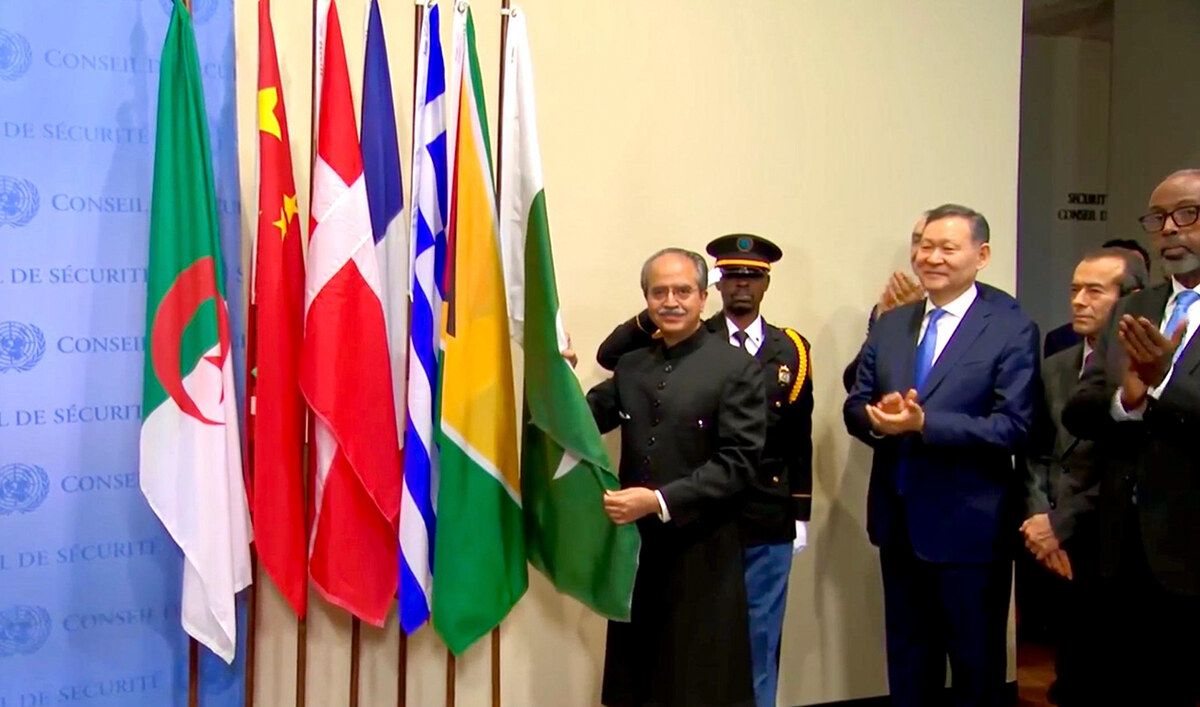ISLAMABAD: Animal defenders in Pakistan have accused the Ministry of Climate Change (MCC) of acting in "bad faith" by stopping the relocation of two Himalayan bears from defunct Islamabad Zoo to a sanctuary in Jordan.
Two Himalayan bears, Suzie and Bubloo, were going to be moved to Al-Ma’wa preserve on Dec. 10, but in a last-minute decision the ministry stopped their travel. The move was opposed by animal rights groups in the Islamabad High Court (IHC), which verdict is expected on Monday.
"It was in bad faith and mala fide intentions that they themselves issued the export permit first and then revoked it at the very last moment," Owais Awan, a lawyer who challenged the ministry's decision on behalf of activists, told Arab News on Sunday.
"In the court, government representatives have taken this pretext that they want to keep them inside Pakistan to show the world that they can take care of our native species as they are Himalayan bears. Which is totally contradictory to the ground realities in which these bears were suffering," he said.
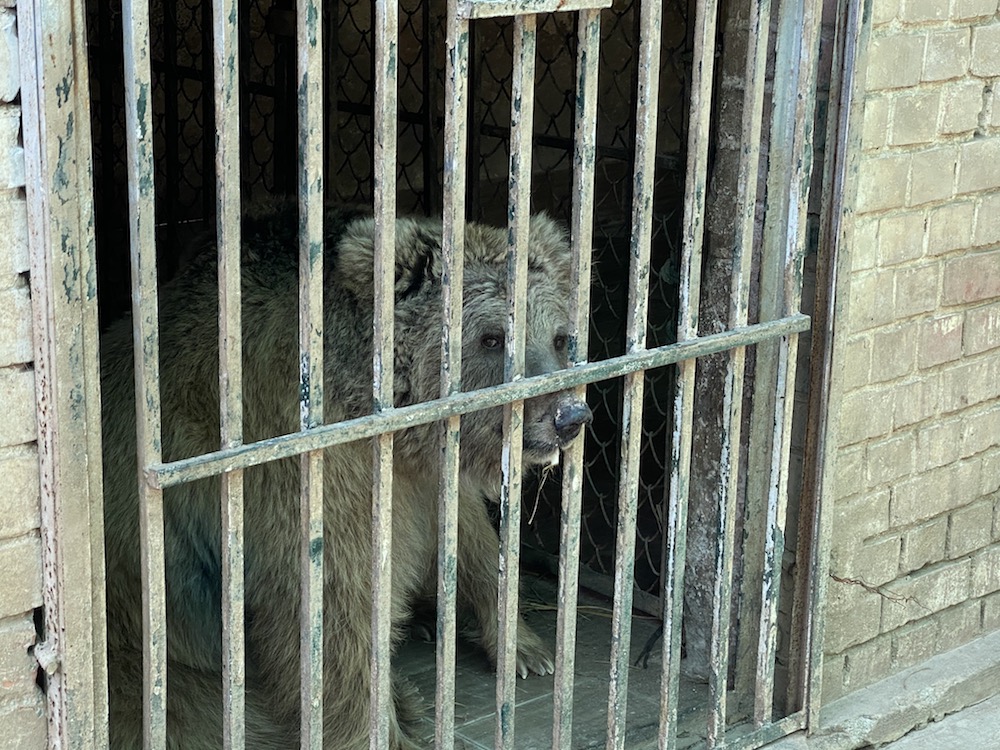
Suzi, a female Himalayan bear which is awaiting relocation to Jordan, sits in her enclosure at Islamabad Zoo on Oct. 3. (AN photo/File)
The former dancing bears are the last animals remaining at the now closed zoological garden in Islamabad, after elephant Kaavan was moved to a sanctuary in Cambodia two weeks ago. When several animals have died at Islamabad Zoo, reportedly due to negligence of their keepers, the court in May ordered that Suzie and Bubloo be relocated. Animal rights groups many times said the bears were not properly looked after and malnourished.
Their travel to Jordan was announced in early October and facilitated by the Jordanian government. The bears were only awaiting clearance from the Pakistani side, which was initially given but then retracted.
The ministry's notification from Dec. 7 says that "the NOC (no objection certificate) issued for the export of two Himalayan brown bears to Jordan is withdrawn/cancelled as per the recommendation of the Islamabad Wildlife Management Board (IWMB)."
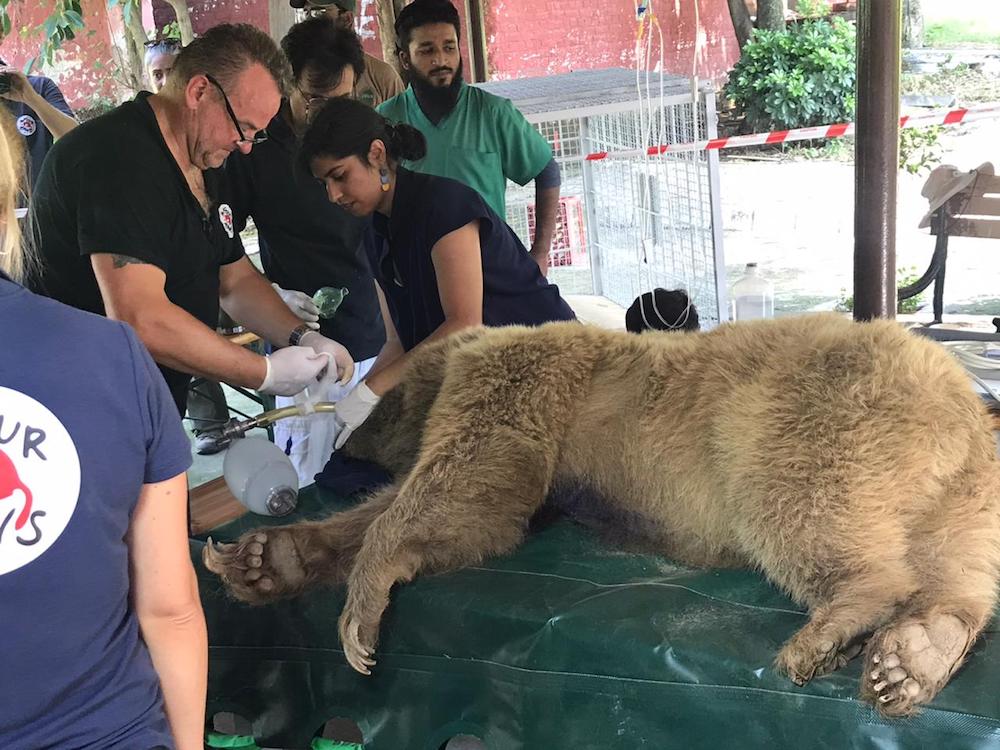
Dr. Frank Goritz, head veterinarian at the Leibniz Institute for Zoo and Wildlife Research (IZW) Berlin, treats Suzi, the female bear at Islamabad Zoo, on Sept. 22. (Photo courtesy: IWMB)
While IWMB chairwoman Rina S. Khan declined comment as the case is in court, former IWMB chairman Dr. Anis Ur Rahman, who was preparing the relocation, told Arab News that the ministry was not acting for the wellbeing of the animals.
"MCC are feeling very slighted on this issue and they have made it an issue of honor. They do not think and feel the pain of the animals, but they feel that if animals were taken away it will lose their respect and reputation that they cannot look after their animals," he said.
"The reason that we applied to the ministry for relocation to Jordan after the wildlife board decision was to rehabilitate them. In Jordan, they have a large area for each bear and better treatment facilities with qualified veterinarians. In Pakistan, we don’t have wildlife veterinarians like them."
"They have gone through examination under anesthesia and everything went well as per international standards,” Rehman said, adding that they would be able to return to Pakistan once appropriate conditions were ready for them at a wildlife facility the Pakistani government is reportedly going to establish in the place of the zoo.
He questioned, however, the ministry's capacity to create the reserve: "I remained chairman of IWMD and I know that we don’t have expertise in it."
Four Paws director for project development Dr. Amir Khalil, who was overseeing the relocation of Kaavan and the bears said all the requirements for Suzie and Bubloo to fly to Jordan have been fulfilled.
"Physically the bears were fit to fly. We have experimented all the requirements on them and provided health certificates and other documents to authorities,” he said, adding that the reason to stop their travel permit remained unknown.
"We don’t know the reason. Initially they have issued permits which they canceled when we were in Cambodia for relocation of Kaavan,” he said, expressing hope that the court's decision on Monday will clear the obstacles.







